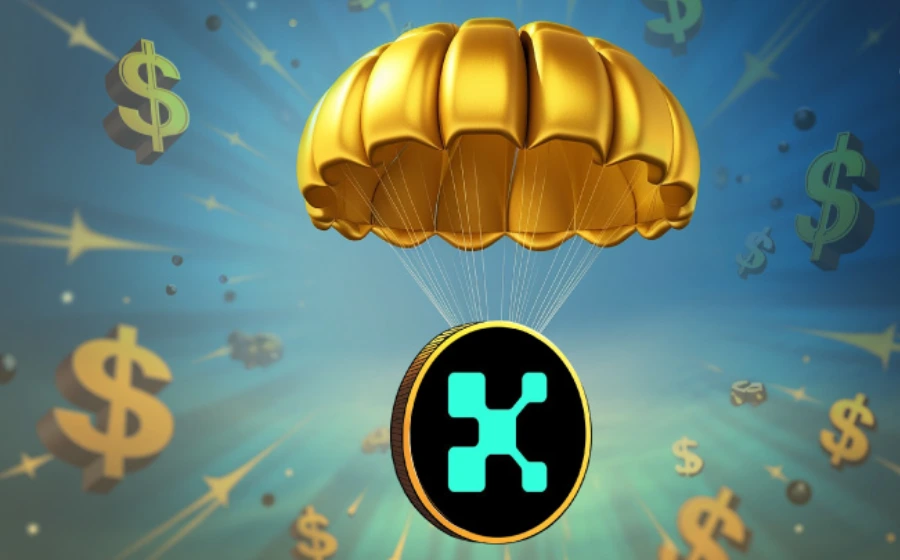
KEYTAKEAWAYS
- Vitalik Buterin has invested in 7 diverse crypto projects, with StarkNet providing the highest return of 146 times his initial investment.
- His investments focus on innovative infrastructure projects like privacy protocols, EVM, and Layer 2 solutions, prioritizing Ethereum ecosystem development over financial gains.
- While Vitalik's endorsement boosts projects, success ultimately depends on product models and operational capabilities to gain widespread user adoption and market trust.

- KEY TAKEAWAYS
- INTRO
- STARKNET: HIGHEST RETURN RATE OF 146 TIMES
- AZTEC NETWORK: NO RIPPLES AFTER $100 MILLION FINANCING
- KAKAROT: AN INNOVATIVE EXPERIMENT IN THE STARKNET ECOSYSTEM
- NOCTURNE: A SHORT-LIVED PRIVACY PROTOCOL
- DAIMO: A WALLET APPLICATION LACKING IN MARKETING CAPABILITIES
- POLYMARKET: RAPID GROWTH BROUGHT BY THE U.S. ELECTION
- MEGAETH: A NEW HOPE FOR ETHEREUM L2?
- DISCLAIMER
- WRITER’S INTRO
CONTENT
Discover Vitalik Buterin’s crypto investments with CoinRank: A look at 7 projects, including StarkNet, Aztec Network, and MegaETH. Exploring his strategic choices and impact on Ethereum’s ecosystem.
INTRO
As a leader in the crypto industry, Vitalik Buterin remains active on the frontlines. Besides being widely known as the founder of Ethereum, Vitalik has also personally invested in several new crypto projects. On June 28, MegaETH, a layer 2 project aiming to build an ultra-high-performance real-time EVM, announced it had secured $20 million in funding, with Vitalik appearing on the list as an investor. PANews has compiled a list of crypto projects Vitalik has invested in to examine his track record as an investor.
According to publicly available information, Vitalik has currently invested in 7 crypto projects. Among them are well-known projects like StarkNet and Polymarket, as well as poorly performing ones like Nocturne, which announced the cessation of operations in June this year.

(Source:PANews)
STARKNET: HIGHEST RETURN RATE OF 146 TIMES
StarkNet is a permissionless decentralized Validity-Rollup (also known as “ZK-Rollup“). It operates as an L2 network on Ethereum. Vitalik invested in StarkNet’s seed round in May 2018, with the total funding amount for this round being $6 million. Vitalik’s share in this has not been disclosed. According to data from chainbroker, the token cost for StarkNet’s seed round investment was $0.025, and the STRK token has risen to as high as $3.66 to date. The highest return rate for Vitalik’s investment reached 146 times. Currently, the STRK price has fallen back to $0.675, still representing a 27-fold return compared to Vitalik’s cost.
In addition to financial support for StarkNet, Vitalik has also publicly expressed support for StarkNet multiple times on social media.
To date, StarkNet has completed a total of $260 million in financing, with the most recent round in May 2022, completing $100 million at an $8 billion valuation.
In February 2024, StarkNet completed its first airdrop and listed its token. In May, Vitalik unlocked 845,205 STRK from StarkNet, worth $1.08 million. Currently, Vitalik has not sold his STRK tokens.
AZTEC NETWORK: NO RIPPLES AFTER $100 MILLION FINANCING
Aztec Network is the first cross-chain privacy bridge on Ethereum. In 2021, Aztec Network announced the completion of a $17 million Series A financing, led by Paradigm, with Vitalik also participating. In fact, as early as 2020, Vitalik had supported Aztec Network on social media, not only showcasing his participation in Aztec’s testing but also tweeting that with Aztec officially entering ZK rollup, layer 2 scaling and privacy were imminent.
In 2022, Aztec Network secured another $100 million in Series B financing, bringing the total financing to $119 million. In 2023, the project launched the Aztec Sandbox Alpha program for developers, considered to be the airdrop expectation testing phase. However, as of June 2024, Aztec has still not announced an airdrop plan, and market attention has gradually decreased. This seems to be due to a lack of marketing capabilities. The latest news shows that Aztec has appointed Claire Kart, former marketing director of Risc Zero, as the new Chief Marketing Officer (CMO).
KAKAROT: AN INNOVATIVE EXPERIMENT IN THE STARKNET ECOSYSTEM
Kakarot is an EVM implemented in Cairo language on Starknet, considered an important innovative experiment in the Starknet ecosystem. In June 2023, Kakarot tweeted that it had completed its Pre-Seed round of financing, with Vitalik Buterin and StarkWare among the investors. The project has not disclosed the specific financing scale, but as early as November 2022, Vitalik had retweeted Kakarot’s open-source code and commented “too cool”. On May 22, 2024, Kakarot announced the launch of its test network.
NOCTURNE: A SHORT-LIVED PRIVACY PROTOCOL
Nocturne is a privacy protocol on Ethereum, with the company’s goal being to allow users to conduct anonymous transactions in the Ethereum ecosystem. The project was established in 2023 and announced a $6 million seed round of financing in October of that year, with Vitalik being one of the investors. In November 2023, Nocturne deployed the V1 version on the Ethereum mainnet, but by January 2024, it announced the closure of this protocol. On June 6, Nocturne announced the gradual cessation of company operations, retaining only the frontend withdrawal function.
Overall, Nocturne might be considered one of Vitalik’s less successful investments, but the shutdown of the project more reflects the difficulties in the privacy track. Looking at the final result, Nocturne’s ability to see things through to the end doesn’t entirely let down Vitalik’s support.
DAIMO: A WALLET APPLICATION LACKING IN MARKETING CAPABILITIES
Daimo is a stablecoin wallet without mnemonic phrases, which announced a $2 million seed round of financing in March 2024. Vitalik is one of the investors. Also in March, Vitalik mentioned Daimo in a published article, comparing it to Venmo (a popular crypto payment software) on Ethereum. However, Daimo’s promotional effect seems to be poor so far, with only about 3,000 followers on Twitter.
POLYMARKET: RAPID GROWTH BROUGHT BY THE U.S. ELECTION
Polymarket is a decentralized information market platform that allows users to make predictions on the world’s most controversial topics. Since its launch in 2020, the project has gradually grown to become a leader in decentralized prediction market platforms. In March 2024, Vitalik tweeted quoting Polymarket‘s data on the percentage of Gas fee reduction after the EIP-4844 upgrade. In May 2024, Polymarket announced the completion of a $45 million Series B financing, with Vitalik Buterin participating in the investment.
On July 2, Vitalik mentioned again on social media: “In my Twitter circle, it has become very normal for people to use Polymarket, metaculus, or http://electionbettingodds.com as evidence of the actual impact of daily political events.” In June 2024, as the U.S. presidential election heated up, Polymarket’s trading volume reached $100 million, hitting a historical high. As the heat of the U.S. election continues to rise, Polymarket’s market heat is expected to remain at a high level.
MEGAETH: A NEW HOPE FOR ETHEREUM L2?
MegaETH is a project that Vitalik recently invested in. On June 28, MegaLabs announced the completion of a $20 million seed round of financing. MegaETH claims that the two key technologies they possess — heterogeneous blockchain architecture and “super-optimized” EVM execution environment — can increase TPS to 100,000. Currently, the project has not officially launched, but judging from the expected goals and market heat, MegaETH could potentially become an important weapon for Ethereum to compete against Solana.
Among the 7 projects Vitalik has invested in, most are innovative projects centered around privacy protocols, EVM, Layer2, wallets, and other crypto infrastructure. Among these projects, only StarkNet has issued tokens, providing financial returns to Vitalik. There are also short-lived projects like Nocturne, hot projects that caught the trend like Polymarket, and potential future stars like MegaETH.
Overall, Vitalik’s investments may not be considered successful from a financial perspective, but it’s clear that Vitalik’s choices are more oriented towards helping the Ethereum ecosystem develop better. Moreover, Vitalik’s investment amounts have never been disclosed publicly. In reality, his participation may have more strategic support significance than financial significance. However, looking at the development of Nocturne or Daimo, having Vitalik’s endorsement is not enough to gain complete market trust. The real test lies more in whether the product model and operational capabilities can gain recognition from the general users.
















